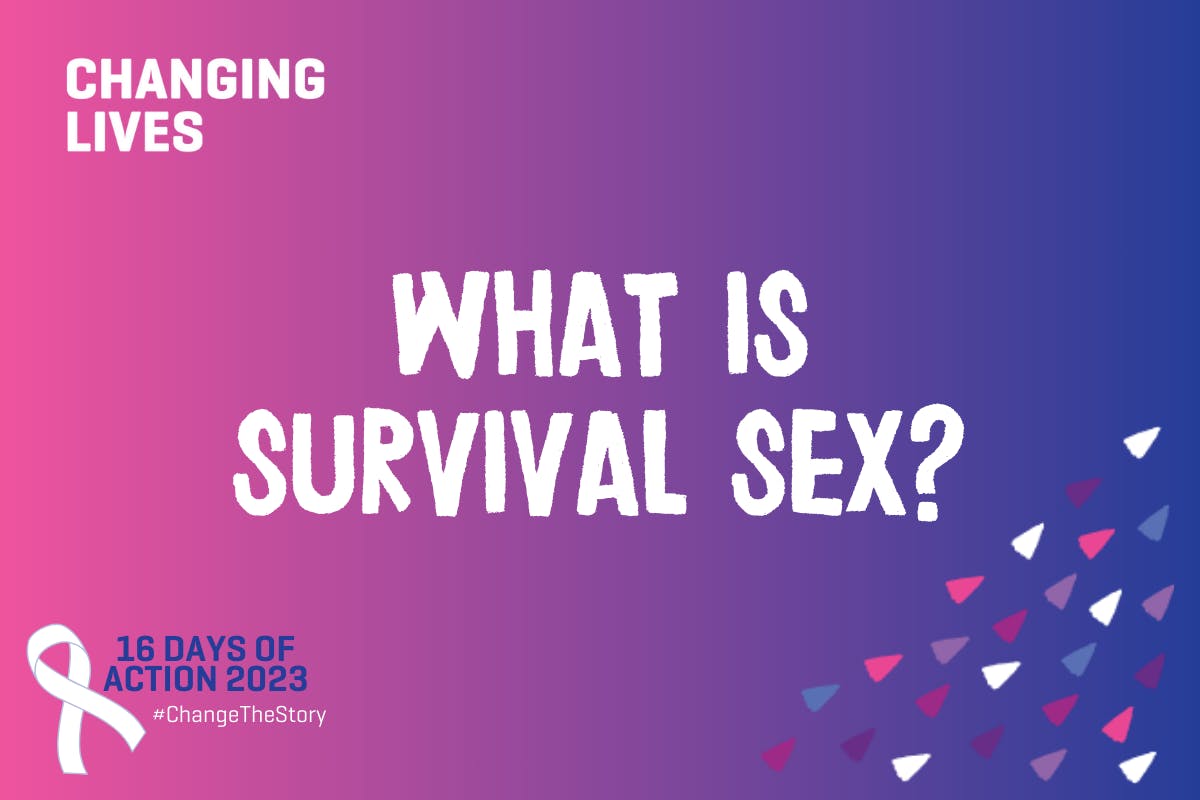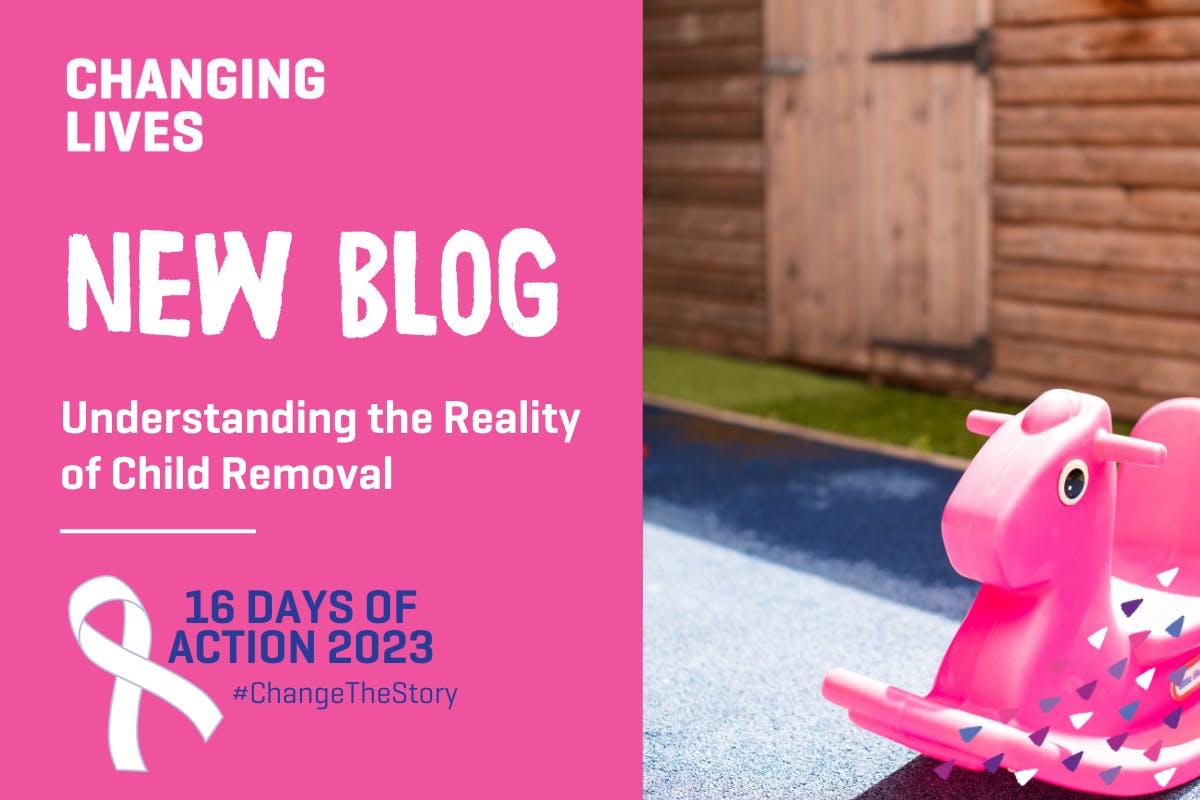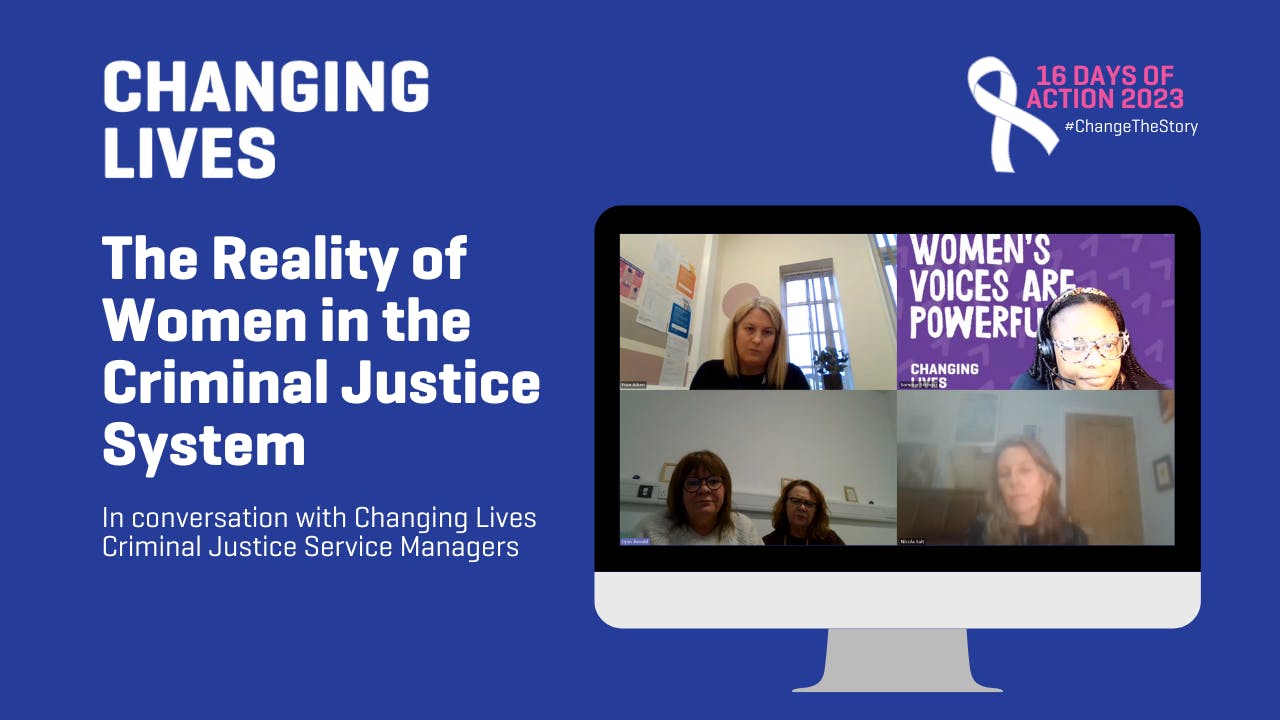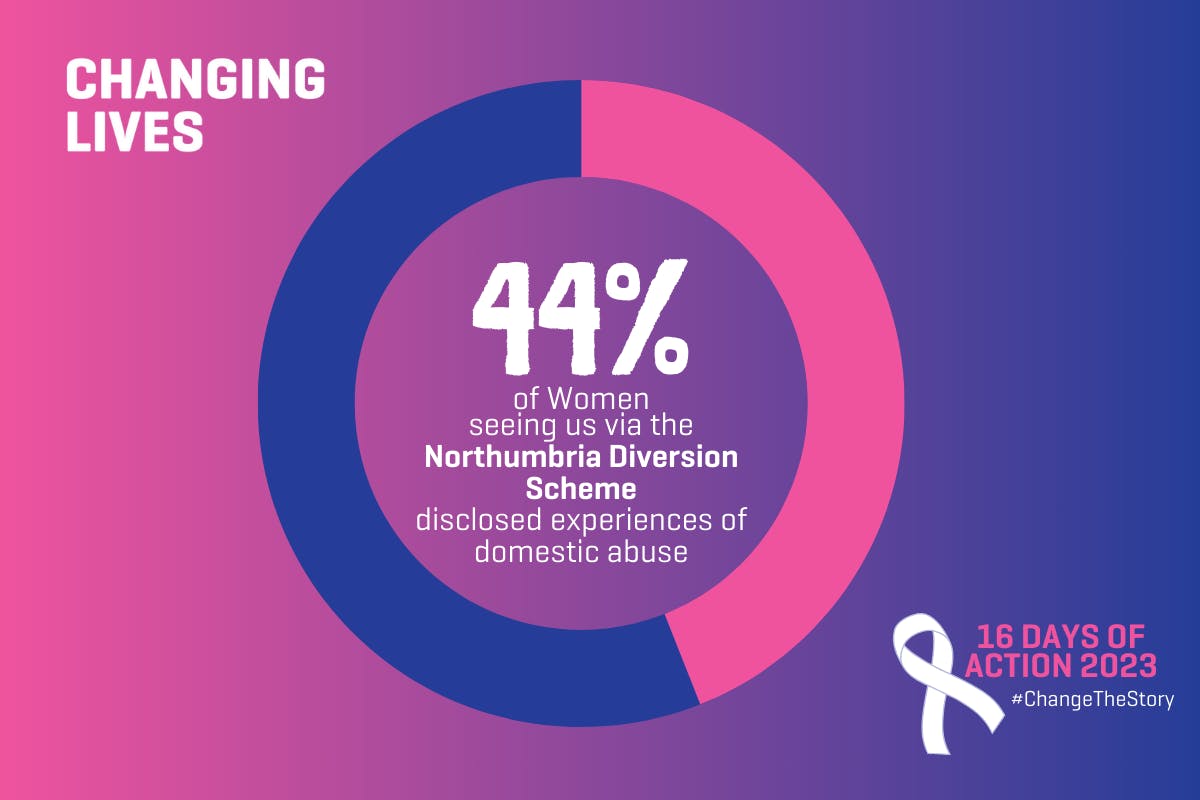On Day 8 of the 16 Days of Action, Area Manager Debra Cowey shares her insights of supporting people who've engaged in survival sex, and highlights research which shows that the experience of people engaging in survival sex may be overlooked.
Changing Lives have a long history of research and support women and men exchanging survival sex. Some examples of our older pieces of research include:
- Hidden for Survival (2008)
- MAP: Exploring the lives of Male Sex Workers in Tyne & Wear (2013)
- “The Type of Girl That Would Do That” (2016)
Through our support and research, Changing Lives have a comprehensive understanding of survival sex and the experiences men and women report to us and the differences from how this presents to commercial sex work. For example, there is often limited or no negotiation regarding the length of time spent together and/or what the transaction will consists of. Although finance could be a factor in both transactions, survival sex is found to be less informal and opportunistic in some cases. Other differences which separate survival and commercial sex work can be the exchange of goods: food, drugs/alcohol, shelter, and sometimes physical safety. Such circumstances can increase vulnerability for those engaging in survival sex, therefore can increase risks for both men and women involved.
Violence, sexual exploitation, rape, and other crimes are regularly disclosed by the people using our services and often this cohort of men and women are repeatedly re-victimised adding to the existing layers of trauma they’re experiencing. Our recent research Make The Link: The premature deaths of women experiencing abuse and exploitation 2022 found a significant link between the premature deaths of women experiencing abuse and exploitation. Women were three times more likely to die compared to the UK average of women. The majority of women identified in this research had multiple unmet needs, including experiences of abuse and exploitation and died under the age of 40.
To date, survival sex remains stigmatised, misunderstood and overlooked by many supporting services which can have detrimental impact when risk assessing and safeguarding women. The lack of professional curiosity and understanding of survival sex, vulnerability and how this can intersect with other elements of their lives has proved detrimental to women’s lives.
Beyond the Streets' Lessons Learnt? Domestic Homicide Reviews through a Sex Industry Lens (2023) report investigated the prevalence of involvement in the sex industry amongst publicly available DHR's in England. The report highlights 23 reviews relevant to individuals involved in the sex industry were identified overall in 21 local authorities. This represents about 5% of all DHRs. . This represents about 5% of all DHRs. The lack of accessibility of many DHRs may mean some reviews featuring individuals selling sex have been missed. (H.J.,&T.K, 2023)
We want to #ChangeTheStory for those engaging in Survival Sex to ensure their unique experiences are heard andunderstood
Definitions
- The term sex work implies that women (in this instance but including men, more broadly) are making free choices to engage in activities that involve an exchange of sexual acts for money, goods or gifts (or the equivalent). This may take place either in person (for example via escorting services, on-street sex work, sex shows, stripping or lap-dancing) or remotely (for example, via web-cams, phones or the selling of photographs).
- Survival sex implies that women (or men) are engaging in sexual exchanges to meet a survival need. This can include housing/shelter, food, tobacco, remittances, protection, alcohol and/or substances. It can be more opportunistic – carried out when women need to meet a need.
- Selling/swapping sex encompasses both of the above types of exchange without distinguishing women’s (or men’s) means of selling/swapping sex.
- Sexual exploitation is distinct from both sex work, survival sex and selling/swapping sex. While there is a potential for violence and coercion to take place in each form, it is inherent to sexual exploitation.
If any of the issues we’ve raised affect you or someone you know and you need support, you can get in touch with us on central.office@changing-lives.org.uk or call us on 01912738891. You can find out more about the type of support we offer here.






